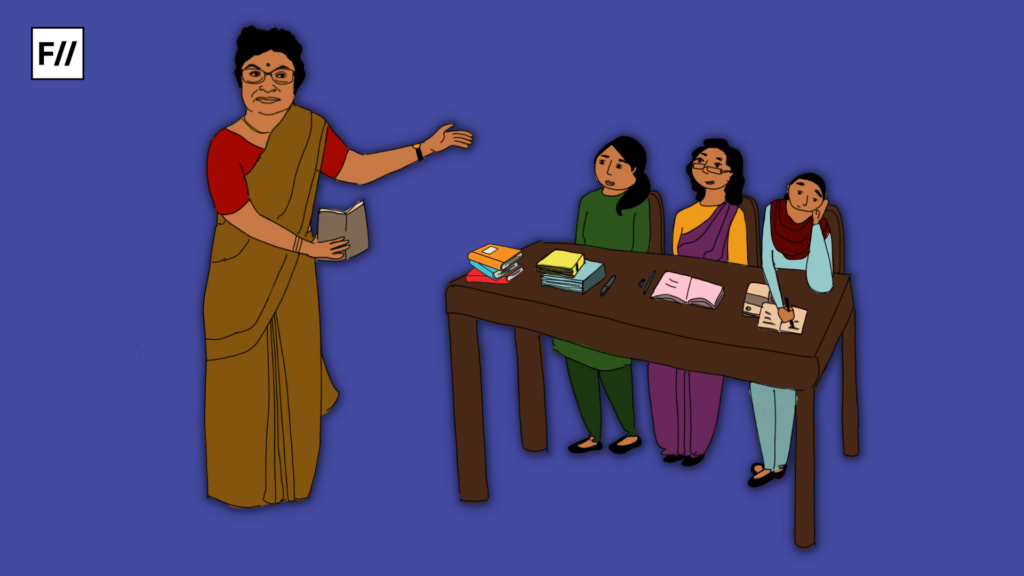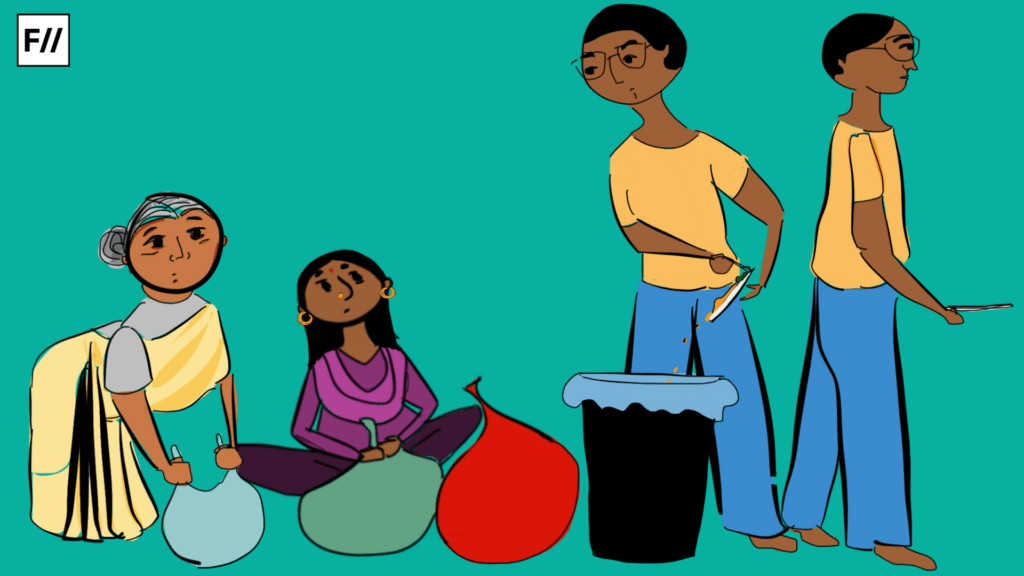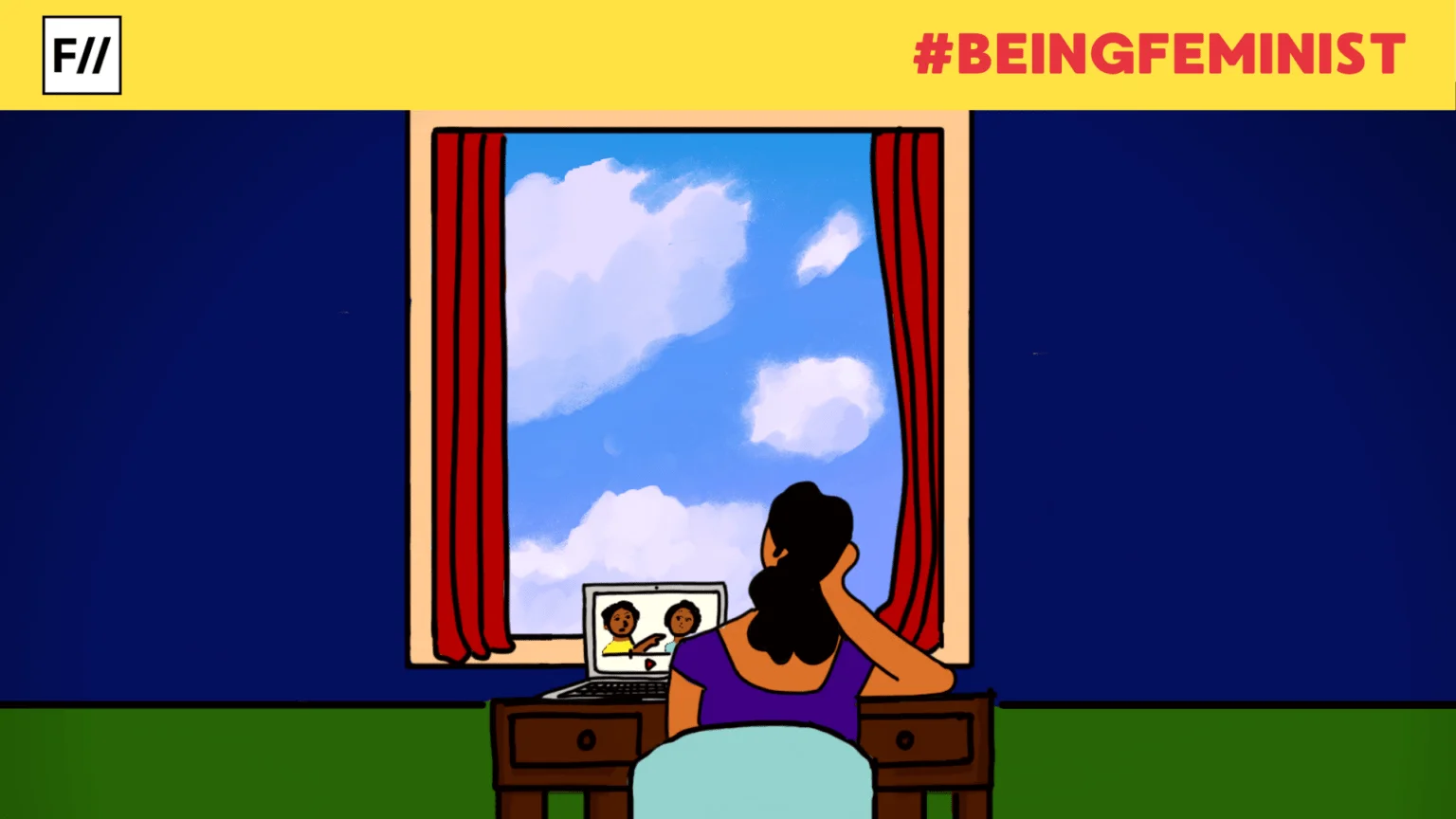Growing up in a small city in North India, a familiar sight was that of my mother making roti (Indian flatbread) almost every day in the kitchen. No matter the weather – be it sweltering June afternoons or freezing December nights, she would toil for hours on end. It must not have been an easy job cooking for a family of eight, and even then, whenever the rotis were anything short of piping hot, I remember my grandparents making their displeasure quite evident, “Do teen roti hi toh khaate hain, vo bhi garam nahi milti,” (We only eat two or three rotis and still they aren’t served hot).
Several years later, when I was a teenager, my mother insisted that I learn how to make tea. I protested vehemently. I had seen my mother’s domestic and culinary labour invisibilised and devalued for years and refused to be put in the same position.
For the longest time, I wanted to be as unlike her as possible and so I actively did not learn how to cook. The negative connotations that I had learnt to associate with housework early on never really left me.
When I came across the poem Breaking Out (1984) by Marge Piercy as part of my school curriculum, it became the perfect encapsulation of my feelings about patriarchy’s endless expectations of a woman.
“…an upright vacuum with its stuffed
sausage bag that deflated with a gusty
sigh as if weary of housework as I,
who swore i would never dust or sweep
after I left home, who hated
to see my mother removing daily
the sludge the air lay down like a snail’s track
so that when in school I read of Sisyphus
and his rock, it was her I
thought of, housewife scrubbing
on raw knees as the factory rained ash…“

Indian households run on the constant invisible labour of women. Celebration of festivals and the entire concept of a very generous ‘Indian‘ hospitality is built on gendered domestic work. During celebratory events, the women will clean, cook, and serve.
Even female guests will be roped in. The men will be served piping hot food first and the women will end up eating whatever is left over, and then proceed to clean up as well. This is a script that I have seen play out countless times not only in my own house but also in most of my friends’ and relatives’ houses as well.
Filmmaker Neeraj Ghaywan’s short film Juice (2017) explores this conundrum in depth. Manju (Shefali Shah) is hosting a party with her husband (Manish Chaudhary) at their house. As soon as the guests come in, the internalised gender divide is clear. The women make a beeline for the kitchen to help Manju out with the cooking while the men sit leisurely in the living room, sipping on drinks. The male space (living room) is relaxed, they even have a cooler running to provide respite from the heat. On the other hand, the female space (kitchen) is hot, chaotic and clamorous, with only a malfunctioning table fan at their service.
When the food is made, one of the female guests berates her daughter for playing video games. She wants her to help serve food to her brothers instead. We see how one is made to internalise these gender roles from childhood itself.
I had the opportunity to watch Jeo Baby’s The Great Indian Kitchen (2021) and it resonated deeply with how I felt about women’s relationship with the thankless drudgery of housework, and how life seems to pass them by in the kitchen. It depicts how cooking, cleaning, and picking up after men is not just a job, but a set expectation. Domestic labour is either glorified or trivialised by the patriarchal mindset, depending entirely on convenience.

Recently, social media has been replete with men in the comments section hitting back at women that they don’t agree with, with a very predictable, misogynistic phrase – “go back to the kitchen.” For these men, housework is seen as inferior to other jobs, and so this is their way of putting women down or putting them ‘in their place.’ In doing so, they are not only reinforcing traditional gender roles but also revealing how patriarchy thrives by pushing women out of public spaces, be it online or in person.
Of course, there is nothing ‘natural‘ about this division of work, as argued by Dr Nivedita Menon in her book Seeing Like A Feminist (2012). Men belong in the kitchen as much as women do. “The sex-based segregation of labour is the key to maintaining not only the family, but also the economy, because the economy would collapse like a house of cards if this unpaid domestic labour had to be paid for by somebody, either by the husband or the employer,” she elaborates.
My feminist principles were triggered – these were the exact same chores that I had vowed never to perform for anybody else. But if I didn’t help her with the chores, nobody else in the house would help her anyway, and she would still be shouldering the burden of domestic labour all by herself. This was the dilemma that I was faced with – either conform to the standards set by patriarchy and participate in housework as expected from me, or abide by my principles and let another woman suffer alone under the same patriarchal institutions.
Voicing my opinion against these traditional roles did not come easy. I was almost always met with resistance from the elders of the house, my father, and most surprisingly, my mother. This brought up more uncomfortable questions than answers for me. Why is it so difficult for her to speak up? Why does she want to take sole responsibility for all household tasks? And most pertinently, why does she not want to be helped?
I realised later that she did want to be helped but in some specific ways. She wanted me to help her by chopping the onions, straining the tea, and making the rotis. My feminist principles were triggered – these were the exact same chores that I had vowed never to perform for anybody else.
But if I didn’t help her with the chores, nobody else in the house would help her anyway, and she would still be shouldering the burden of domestic labour all by herself. This was the dilemma that I was faced with – either conform to the standards set by patriarchy and participate in housework as expected from me, or abide by my principles and let another woman suffer alone under the same patriarchal institutions.

Over time I have realised that as feminists, we must pick our battles. The personal is political, but the political acts might be different for different women. For Piercy, it was the violent smashing of a cane that helped her gain closure; for Manju, it was the silent defiance of relishing her juice and taking up space in the masculine sphere. For me, it is continuing to speak my mind and engaging in difficult conversations with my family about the sexist underpinnings of the Indian kitchen, while also helping my mother in the ways that she wants to be helped.
Years later, I still don’t make my morning coffee. My partner is happy to do it for me, and I remember to acknowledge their efforts. We continue to make room for our relationship to grow in a way that feels equitable for both of us. From never wanting to cook, I have reached a point where I am starting to learn the science behind cooking at my own pace and enjoy making the occasional stir fry or pasta dish to relish at lunch.
Breaking out of gendered family dynamics and creating an equal partnership without any set gender roles has been one of the small feminist wins that I am quite proud of.
About the author(s)
Divyani is a media and research professional with a background in critical cultural theory. Her core interest areas are digital cultures, sexuality, and mental health. She loves annoying her cat and a good cup of coffee.






Well written analysis of the nonending family gender inequality. By moving into feminist lobby we are only subjecting our own mother or sister into more backbreaking drudgery. No feminist lobby comes in support when a woman is being exploited in which ever way.